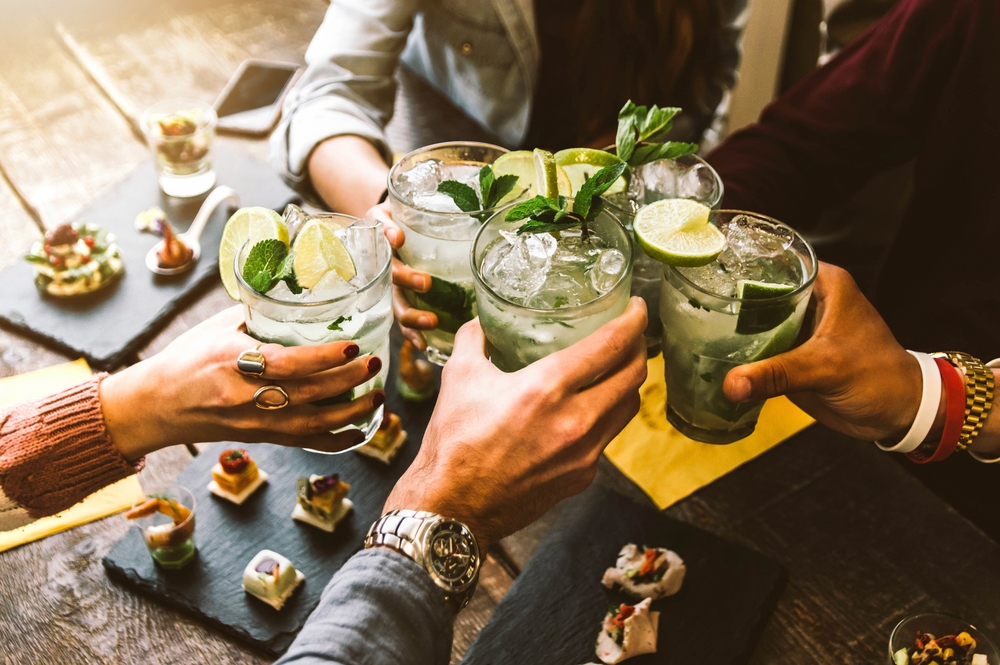We possess only one brain, and safeguarding its health represents an investment in our long-term well-being. A nimble mind capable of comprehension, retention, focus, and creativity contributes to a sense of youthfulness and happiness. However, the key to maintaining these mental faculties lies in how well we nurture ourselves and manage our health. Remarkably, even our dietary and drinking choices can accelerate the aging process of our brain.
As we progress through the journey of life, our brain undergoes natural changes. These changes encompass brain shrinkage, alterations in white matter, and a decrease in neurotransmitter activity involving dopamine, acetylcholine, serotonin, and norepinephrine. These shifts can manifest as mild memory lapses, difficulties in acquiring new skills, and challenges in multitasking. While these effects are generally considered part of the normal aging process, more pronounced or extreme neurological changes associated with aging could signify the emergence of serious health conditions such as dementia or even Alzheimer’s disease.
Numerous factors influence the pace at which our brains age, and diet stands out as a major contributor. In fact, certain common drinking habits have the potential to accelerate the aging of our precious brain. These habits include excessive alcohol consumption, inadequate hydration, and the preference for sugary beverages. To explore further ways to enhance overall brain health, consider referring to the findings of a recent study that identifies the optimal diet for brain health.
Skipping out on green tea
While the absence of green tea from your routine won’t necessarily hasten the aging of your brain, incorporating regular consumption of green tea can provide valuable support to your aging cognitive faculties.
Scientific studies have revealed a noteworthy connection between the consumption of green tea and a decreased risk of cognitive decline in individuals in their middle-aged and older years. Green tea has demonstrated its ability to enhance memory, attention, and overall brain performance. In essence, choosing to forgo green tea won’t have adverse effects on your brain, but it does mean missing out on numerous cognitive advantages.
Drinking to get intoxicated
When finding yourself in a new social setting, alcohol can often serve as a quick way to feel more relaxed and sociable. However, it’s crucial to be mindful of your alcohol consumption, especially if you’re feeling uncomfortable. Excessive drinking can lead to intoxication and the accumulation of toxins that can harm your brain cells, as cautioned by Dr. William Li, the CEO, president, and medical director of the Angiogenesis Foundation.
Dr. Li emphasizes that high levels of alcohol can swiftly damage brain neurons, so drinking excessively to achieve intoxication can result in brain impairment and even brain damage. In the short term, your brain possesses the capacity to repair itself to some extent. Nevertheless, repeated episodes of excessive drinking can exacerbate the toxic effects in the brain, leading to a condition known as neuroinflammation.
Dr. Li further explains that this neuroinflammation becomes evident through impaired cognitive functions and changes in your personality. Additionally, the detrimental impact of excessive alcohol extends beyond the brain, affecting other vital organs such as the liver and heart.
Instead of overindulging, Dr. Li recommends a more moderate approach when attending social gatherings. Opting for a single glass of red wine can provide the desired sense of calmness without jeopardizing the health of your brain.
Drinking beverages high in sugar
While the brain relies on glucose (sugar) for its proper functioning, it’s important to be cautious about excessive sugar intake, advises Tara Tomaino, RD, the nutrition director of The Park. Numerous studies have established a link between excessive sugar consumption and cognitive impairment, which is particularly concerning for individuals with diabetes. But why does this connection exist?
Tomaino explains that diabetes can lead to the narrowing of blood vessels, resulting in reduced blood flow to the brain. This reduced blood flow can contribute to cognitive challenges.
Reducing sugar intake can be a challenging endeavor, but there are gradual steps you can take to make positive changes. One strategy is to replace sugary beverages like sodas, juices, teas, and slushies with unsweetened alternatives. Tomaino also recommends diluting sweet drinks with water or gradually reducing the amount of sugar you add to your beverages.
It’s worth noting that your taste buds can adapt over time to lower levels of sugar, so making these adjustments can be a beneficial step towards better cognitive health.
Not drinking enough water
Amy Goodson, MS, RD, CSSD, LD, author of the Sports Nutrition Playbook and a member of our Expert Medical Board, highlights the significant impact of dehydration on the aging process of the brain.
Goodson explains that dehydration can lead to feelings of fatigue and tiredness, which can subsequently affect your cognitive alertness. To maintain mental clarity and attentiveness, it is crucial to ensure you are consistently consuming an adequate amount of water and fluids throughout the day.
Furthermore, dehydration can contribute to a decrease in mental acuity, or mental sharpness, potentially impairing your brain’s proper functioning. Thus, staying well-hydrated is essential to support optimal brain function throughout the day.
Drinking a glass or two each night
Here’s some concerning information: If you have a habit of unwinding with a Netflix session accompanied by a tall glass of pinot, it may have repercussions on your cognitive functions and memory. A study featured in Nature Scientific Reports involving 353 participants who underwent MRI scans has revealed a connection between moderate alcohol consumption—defined as fewer than three drinks per day for females and four drinks per day or less for males—and a reduction in brain volume.
If you’re contemplating cutting back on alcohol, Karen Raden, MS, RD, CCN, LDN, an integrative nutritionist at Raden Wellness, suggests a helpful alternative. She recommends using a wine glass for a non-alcoholic beverage, preserving the comforting ritual without the negative impact on your brain.
Raden explains that this approach serves as a psychological substitute for those who enjoy the act of drinking, allowing them to maintain the ritual without the necessity of consuming alcohol.

